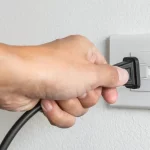High blood pressure, often termed the “silent killer,” sneaks up without warning. It’s a condition many might overlook until it escalates to critical levels. Here’s what to do when you notice your blood pressure creeping up—advice that’s often not talked about but is crucial for managing your health.
- Stay Calm: Initial spikes can sometimes be due to stress or anxiety. Take a moment to breathe deeply and relax, which can naturally lower your blood pressure.
- Recheck: If you’re using a home monitor and get a high reading, rest for a few minutes and then take another measurement. Ensure your device is calibrated and you’re using the correct technique.
- Monitor Regularly: Keep a log of your blood pressure readings to identify patterns or triggers. This record can be invaluable for your healthcare provider in managing your condition.
- Adjust Your Lifestyle: Incorporate heart-healthy habits such as regular exercise, a balanced diet low in sodium and high in fruits and vegetables, maintaining a healthy weight, and limiting alcohol intake.
- Limit Stress: Chronic stress is a significant contributor to high blood pressure. Engage in stress-reducing activities like meditation, yoga, or hobbies that relax you.
- Cut Back on Caffeine: For some, caffeine can cause a short-term spike in blood pressure. Monitor your body’s response to caffeine and adjust your intake if necessary.
- Quit Smoking: Smoking accelerates the damage high blood pressure does to your artery walls. Quitting can improve your heart health significantly.
- Consult a Professional: If lifestyle adjustments don’t bring your blood pressure down to safe levels, it’s time to see a healthcare provider. They can prescribe medication or further interventions tailored to your specific needs.
Remember, managing high blood pressure is a marathon, not a sprint. It requires consistent effort and sometimes significant lifestyle changes. But with the right approach, it’s a manageable condition that doesn’t have to dictate your life.


